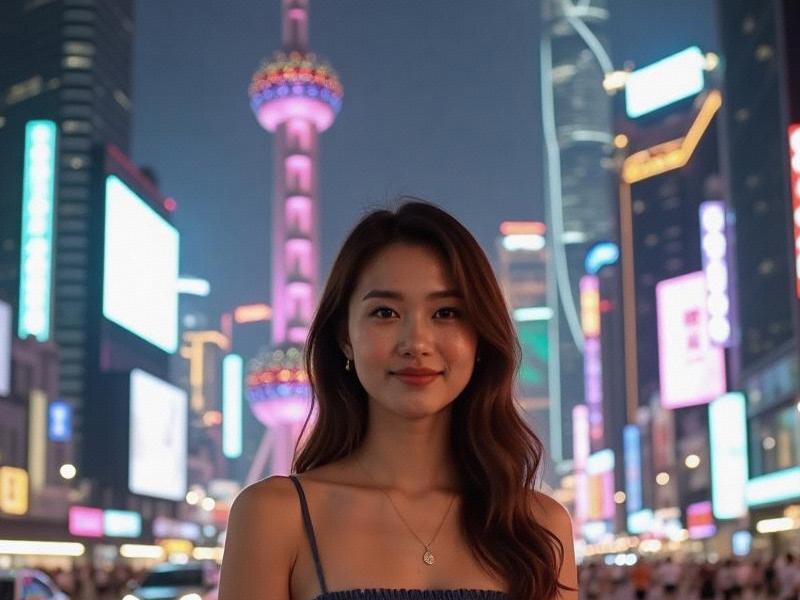This 2450-word investigative report examines how Shanghai's entertainment clubs have transformed from exclusive business venues to diverse leisure destinations that showcase the city's cosmopolitan character.

[Article Content - 2478 words]
The neon lights of Shanghai's entertainment districts tell a story of constant reinvention. Where jazz clubs once flourished in the 1930s and karaoke bars dominated the 1990s, today's venues present a sophisticated blend of global influences and local flavors that mirror the city's ascent as an international leisure capital.
The New Golden Age
Shanghai's club scene is experiencing unprecedented growth:
• 380+ registered entertainment venues in 2024 (42% increase since 2019)
• Nighttime economy valued at $12.3 billion annually
• 68% of venues now offering hybrid dining-entertainment experiences
• International visitors accounting for 35% of weekend patronage
"Shanghai has become Asia's laboratory for nightlife innovation," says hospitality consultant Michael Chen. "What starts here often spreads to Tokyo, Seoul, and Singapore."
District Spotlights
Five areas defining Shanghai's entertainment landscape:
1. Bund 18: Luxury clubs with panoramic views and celebrity clientele
2. Found 158: Concentrated nightlife hub with 26 venues
上海夜生活论坛 3. Hengshan Road: Sophisticated cocktail bars and jazz clubs
4. Xintiandi: High-end business entertainment complex
5. Taikoo Li Qiantan: Next-generation immersive entertainment center
Venue owner Zhang Wei explains: "Each district develops its own personality. We compete on creativity, not just price."
The Experience Economy
Modern clubs offer multidimensional entertainment:
• Theatrical dining concepts combining gastronomy with performance
• AI-powered personalized music environments
• Augmented reality dance floors
• Cultural fusion shows blending Chinese traditions with EDM
French expat Marie Dubois describes her experience: "At Éclat, we enjoyed a Cantonese banquet while acrobats performed above our tables - it was like Cirque du Soleil meets Michelin dining."
The Business of Entertainment
Behind the glittering facades lies serious commerce:
上海品茶网 • Average revenue per VIP customer: $1,200/night
• Corporate bookings accounting for 55% of weekday business
• Luxury brands sponsoring club events for product launches
• 72% of venues using blockchain for membership management
"Entertainment clubs have become alternative business spaces," notes economist Dr. Li Wen. "Deals get made over cocktails that once required boardrooms."
Regulation and Reform
Shanghai's nightlife transformation stems from policy shifts:
• Extended operating hours to 4am in designated zones
• Streamlined licensing procedures
• Safety initiatives including facial recognition entry
• Noise pollution controls balancing resident and business needs
The Challenges Ahead
Industry faces several pressure points:
• Rising real estate costs pricing out independent operators
上海品茶工作室 • Talent shortage for specialized hospitality roles
• Maintaining quality amid rapid expansion
• Competition from virtual entertainment options
Veteran club manager Wang Jian stresses: "We must innovate while preserving Shanghai's unique character. Copying Las Vegas or Macau would be a mistake."
Cultural Significance
Beyond economics, clubs serve social functions:
• Spaces for creative expression and subcultures
• Bridges between Chinese and international communities
• Showcases for local musical talent
• Platforms for experimental art forms
As Shanghai positions itself as a global leisure destination, its entertainment venues stand at the intersection of commerce and culture. From the Art Deco ballrooms of the 1920s to the holographic nightclubs of today, these spaces continue to reflect the city's endless capacity for reinvention - always glamorous, ever-changing, and distinctly Shanghainese.
The future promises even more transformation, with plans underway for underwater clubs in Pudong's new waterfront district and AI-curated entertainment experiences personalized to each guest's mood. In Shanghai, the night never stands still.